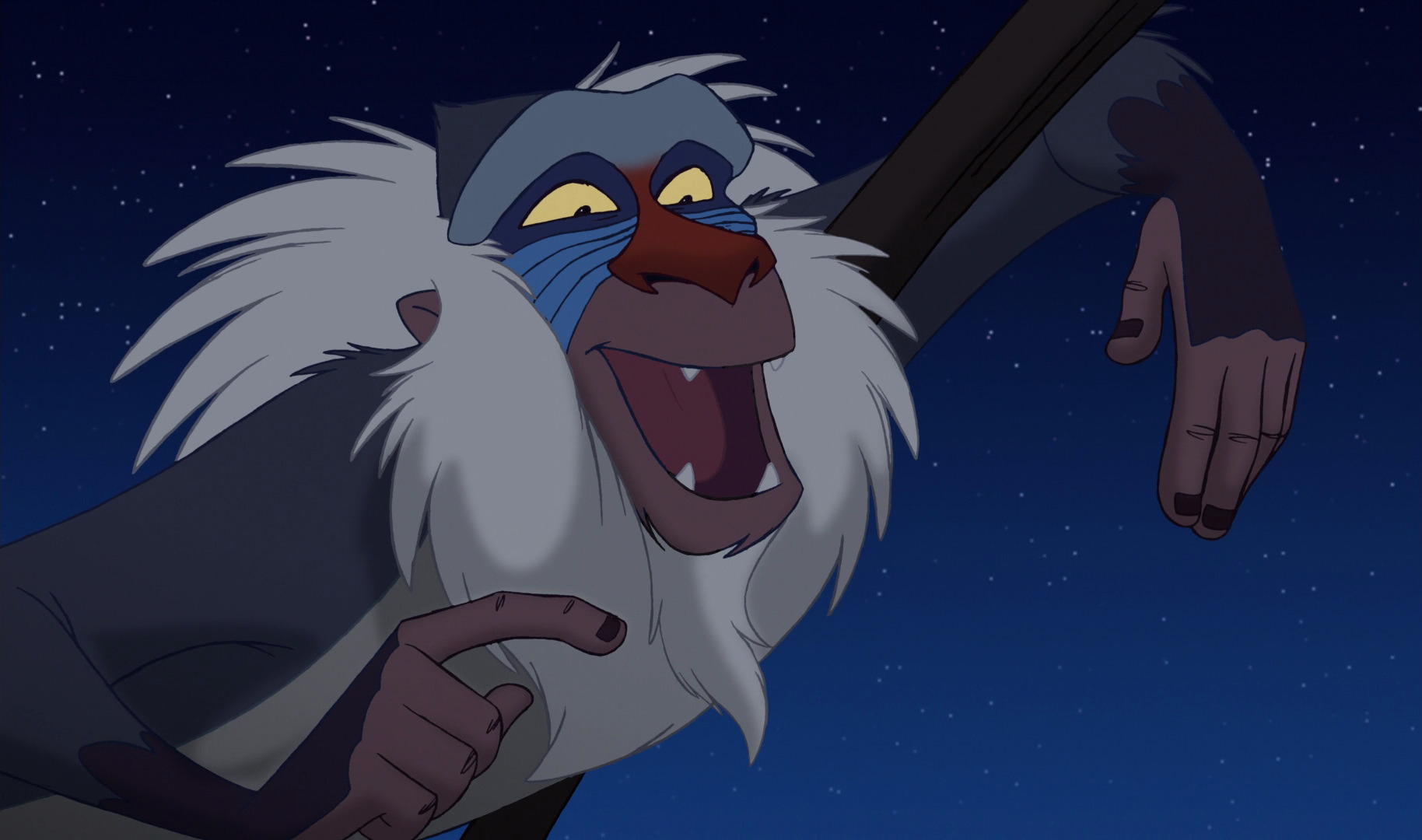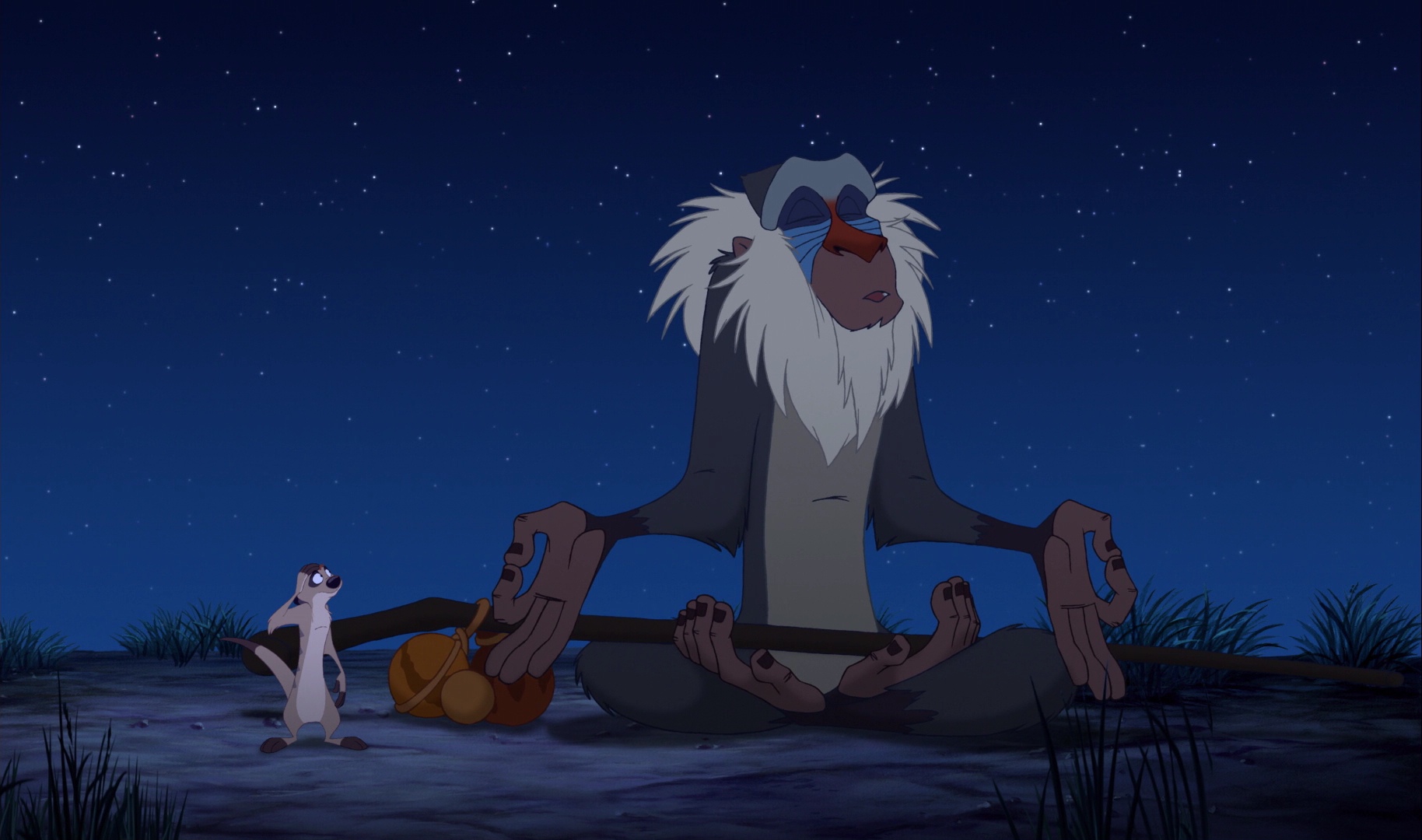From his iconic chants to his symbolic staff, Rafiki is more than just a character—he’s a guide who helps Simba rediscover his purpose. In this article, we’ll delve into the story behind Rafiki, exploring his origins, significance, and the deeper meaning of his role in the Lion King universe. Whether you’re a fan of the original animated classic, the live-action remake, or the Broadway musical, this exploration will provide fresh insights into one of Disney’s most beloved characters.
As we unravel the layers of Rafiki’s character, you’ll discover how he bridges the gap between tradition and innovation, blending African cultural influences with universal themes. His presence in the story is not just a nod to the importance of wisdom and guidance but also a celebration of the interconnectedness of all living beings. Rafiki’s role is symbolic of the spiritual forces that guide us through life’s challenges, making him an integral part of the narrative. His memorable scenes, such as the "Asante Sana" chant and the dramatic moment when he unveils Simba’s reflection in the water, are etched in the minds of audiences worldwide. These moments are not just entertaining but also deeply meaningful, offering lessons about identity, self-discovery, and the power of believing in oneself.
But who exactly is Rafiki, and what inspired his creation? To answer these questions, we’ll explore the origins of the character, the cultural influences that shaped him, and the artistic decisions that brought him to life. From his unique design to his philosophical musings, Rafiki stands as a testament to the creativity and thoughtfulness of Disney’s storytelling. By the end of this article, you’ll have a deeper appreciation for the monkey in "The Lion King" and the story behind Rafiki, understanding why he continues to resonate with audiences of all ages. So, let’s embark on this journey to uncover the magic and meaning behind one of Disney’s most iconic characters.
Read also:Ullu Web Series Online Play Everything You Need To Know
Table of Contents
- Who is Rafiki? A Closer Look at the Monkey in "The Lion King"
- What Cultural Inspirations Shaped Rafiki’s Character?
- How Does Rafiki Symbolize Wisdom and Spirituality?
- What Are Rafiki’s Most Memorable Moments in the Lion King?
- Why Was Rafiki Designed as a Mandrill?
- What Life Lessons Can We Learn from Rafiki’s Philosophy?
- Who Voiced Rafiki, and What’s His Real-Life Story?
- Why Is Rafiki Considered a Fan Favorite in the Lion King Universe?
Who is Rafiki? A Closer Look at the Monkey in "The Lion King"
Rafiki, whose name means "friend" in Swahili, is a mandrill who serves as the shaman and advisor to the animals in the Pride Lands. He is introduced early in the story as the one who blesses Simba at his birth ceremony, symbolizing the connection between the spiritual and physical worlds. Rafiki’s role is multifaceted—he is a spiritual guide, a wise mentor, and a comedic figure who brings levity to the narrative. His eccentric behavior, characterized by cryptic sayings and unpredictable actions, adds depth to his character and makes him a standout figure in the Lion King universe.
To better understand Rafiki, let’s take a look at his personal details and bio data:
| Attribute | Details |
|---|---|
| Name | Rafiki |
| Species | Mandrill |
| Role | Shaman, Advisor, Spiritual Guide |
| First Appearance | The Lion King (1994) |
| Voiced By | Robert Guillaume (Original), John Kani (Live-Action) |
| Signature Traits | Wisdom, Eccentricity, Spiritual Insight |
Rafiki’s character is a blend of humor and profundity, making him relatable yet mysterious. His interactions with Simba, particularly during the pivotal scene where he helps the young lion confront his past, highlight his role as a catalyst for growth and transformation. Rafiki’s journey in the story is not just about guiding others but also about embodying the timeless wisdom that transcends generations.
What Cultural Inspirations Shaped Rafiki’s Character?
Rafiki’s character is deeply rooted in African cultural traditions, drawing inspiration from the continent’s rich folklore and spiritual practices. The creators of "The Lion King" aimed to craft a story that celebrated African culture, and Rafiki serves as a bridge between the audience and these traditions. His role as a shaman reflects the importance of spiritual leaders in many African communities, who are often seen as mediators between the physical and spiritual realms.
How Does African Folklore Influence Rafiki’s Role?
African folklore is filled with tales of wise animals who guide heroes on their journeys, much like Rafiki’s role in "The Lion King." These stories often emphasize themes of interconnectedness, respect for nature, and the cyclical nature of life. Rafiki’s chants, rituals, and symbolic staff are reminiscent of traditional African spiritual practices, where objects and words hold deep meaning. His use of Swahili phrases, such as "Asante Sana" (Thank You Very Much), further reinforces his connection to African culture.
Why Is Rafiki’s Wisdom Universally Relatable?
While Rafiki’s character is steeped in African traditions, his wisdom transcends cultural boundaries. His teachings about embracing the past and finding one’s true path resonate with audiences worldwide. This universality is a testament to the timeless nature of the themes explored in "The Lion King," making Rafiki a character whose insights are cherished by people of all backgrounds.
Read also:Does Martin Henderson Have Cancer Everything You Need To Know
How Does Rafiki Symbolize Wisdom and Spirituality?
Rafiki’s role in "The Lion King" is symbolic of wisdom and spirituality, serving as a reminder of the deeper forces that guide our lives. His character embodies the idea that true wisdom comes from understanding the interconnectedness of all things. Through his actions and words, Rafiki teaches Simba—and the audience—the importance of self-reflection, courage, and embracing one’s destiny.
What Does Rafiki’s Staff Represent?
Rafiki’s staff, adorned with a gourd and colorful beads, is a powerful symbol of his spiritual authority. It represents his connection to the spiritual world and his role as a guide. The staff is not just a prop but a tool that Rafiki uses to channel his wisdom and perform rituals, such as the one at Simba’s birth ceremony. This object serves as a visual reminder of Rafiki’s unique position in the Pride Lands.
How Does Rafiki’s Eccentricity Enhance His Role?
Rafiki’s eccentric behavior, from his unpredictable movements to his cryptic sayings, adds depth to his character. His quirks make him approachable and relatable, while also highlighting his profound understanding of life’s complexities. By balancing humor with wisdom, Rafiki becomes a character who is both entertaining and enlightening.
What Are Rafiki’s Most Memorable Moments in the Lion King?
Rafiki’s presence in "The Lion King" is marked by several iconic scenes that have left a lasting impression on audiences. These moments not only showcase his wisdom but also highlight his unique personality and role in the story. From the opening ceremony to his pivotal encounter with Simba, Rafiki’s scenes are filled with meaning and emotion.
Why Is the "Asante Sana" Chant So Memorable?
The "Asante Sana" chant is one of Rafiki’s most iconic moments, blending humor with cultural significance. This scene not only introduces Rafiki’s quirky personality but also establishes his connection to African traditions. The chant, which translates to "Thank you very much, squash banana, we we we all the way home," is a playful yet meaningful moment that captures Rafiki’s essence.
What Makes Rafiki’s Reflection Scene So Powerful?
In one of the most poignant moments of the film, Rafiki helps Simba confront his past by showing him his reflection in a pool of water. This scene is a turning point in Simba’s journey, as it forces him to face his fears and embrace his identity. Rafiki’s words, "You see? It is in the past," are a powerful reminder of the importance of letting go and moving forward.
Why Was Rafiki Designed as a Mandrill?
Rafiki’s design as a mandrill was a deliberate choice by the creators of "The Lion King," reflecting both cultural and artistic considerations. Mandrills are known for their vibrant colors and distinctive features, making them a fitting choice for a character who embodies wisdom and spirituality. Rafiki’s appearance, with his bright blue face and red crest, is both striking and symbolic.
How Does Rafiki’s Design Reflect His Personality?
Rafiki’s colorful appearance mirrors his vibrant personality and multifaceted role in the story. His blue face symbolizes calmness and wisdom, while his red crest represents energy and passion. These visual elements enhance his character, making him instantly recognizable and memorable.
What Inspired the Choice of a Mandrill?
The choice of a mandrill was influenced by the animal’s prominence in African folklore and its association with wisdom and leadership. By designing Rafiki as a mandrill, the creators of "The Lion King" were able to pay homage to African traditions while also creating a character who stands out visually and thematically.
What Life Lessons Can We Learn from Rafiki’s Philosophy?
Rafiki’s philosophy is filled with timeless wisdom that offers valuable lessons for life. His teachings about the circle of life, the importance of self-reflection, and the power of embracing one’s identity are as relevant today as they were when "The Lion King" was first released. Through his words and actions, Rafiki encourages us to find meaning in our experiences and to trust in the journey of life.
How Does Rafiki Teach Us to Embrace the Past?
Rafiki’s famous line, "You see? It is in the past," is a powerful reminder that we cannot change what has already happened. Instead, we must learn from our experiences and use them to shape our future. This lesson is particularly relevant in today’s fast-paced world, where it’s easy to get caught up in regret or fear.
What Does Rafiki’s Approach to Life Teach Us?
Rafiki’s approach to life is one of balance and acceptance. He teaches us to embrace both the highs and lows of life, understanding that each experience is part of the circle of life. By living in harmony with the world around us, we can find peace and fulfillment in our journey.
Who Voiced Rafiki, and What’s His Real-Life Story?
Rafiki’s voice is brought to life by Robert Guillaume in the original animated film and John Kani in the live-action remake. Both actors brought unique qualities to the character, enhancing Rafiki’s depth and appeal. Robert Guillaume’s performance was marked by warmth and gravitas, while John Kani added a sense of dignity and authority to the role.
What Makes Robert Guillaume’s Performance Memorable?
Robert Guillaume’s portrayal of Rafiki is iconic, capturing the character’s wisdom and eccentricity with perfect balance. His rich, resonant voice added depth to Rafiki’s philosophical musings, making them resonate with audiences. Guillaume’s performance remains a beloved aspect of the original film.
How Did John Kani Bring Rafiki to Life in the Live-Action Remake?
John Kani’s portrayal of Rafiki in the live-action remake brought a new dimension to the character. His performance emphasized Rafiki’s spiritual authority and connection to African traditions, adding a layer of authenticity to the role. Kani’s interpretation of Rafiki was widely praised for its depth and nuance.
Why Is Rafiki Considered a Fan Favorite in the Lion King Universe?
Rafiki’s unique blend of

